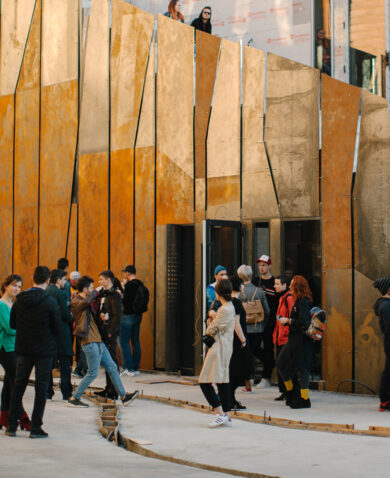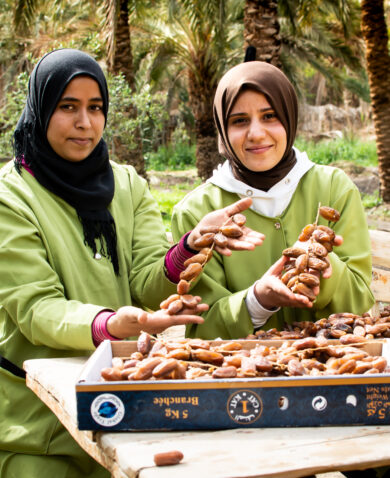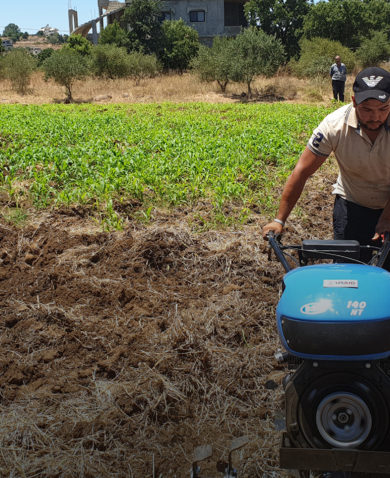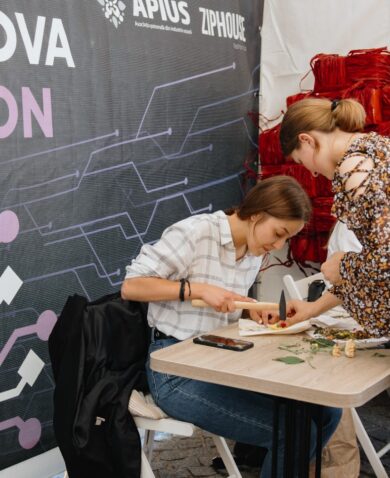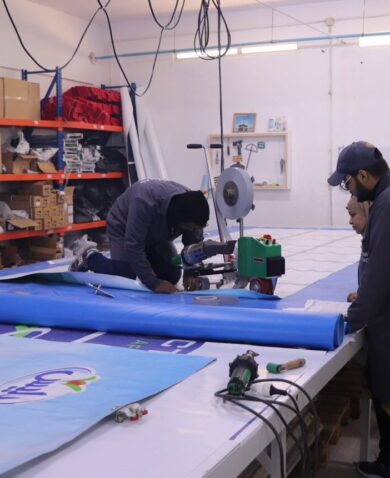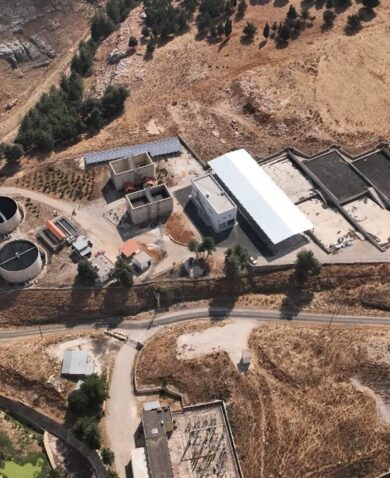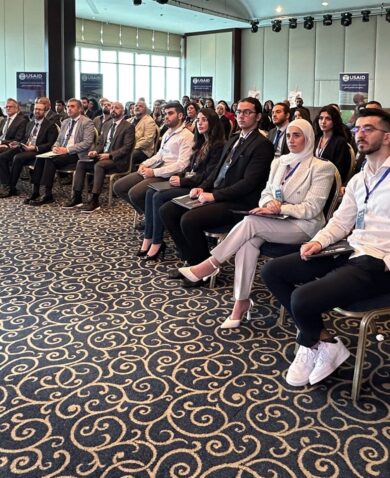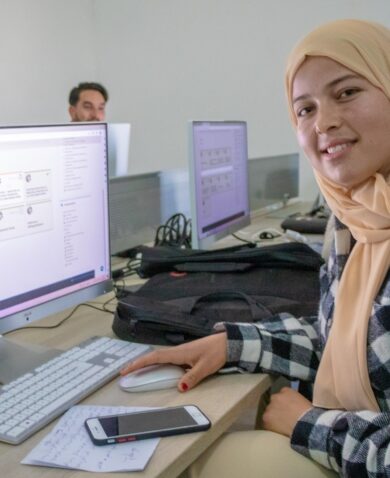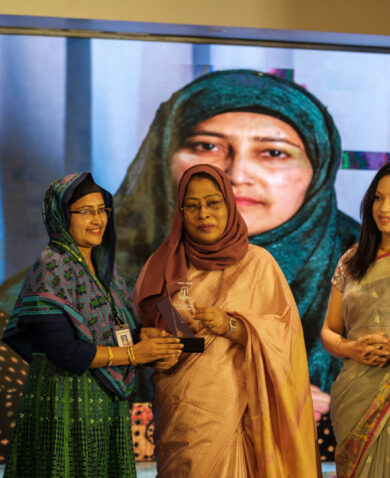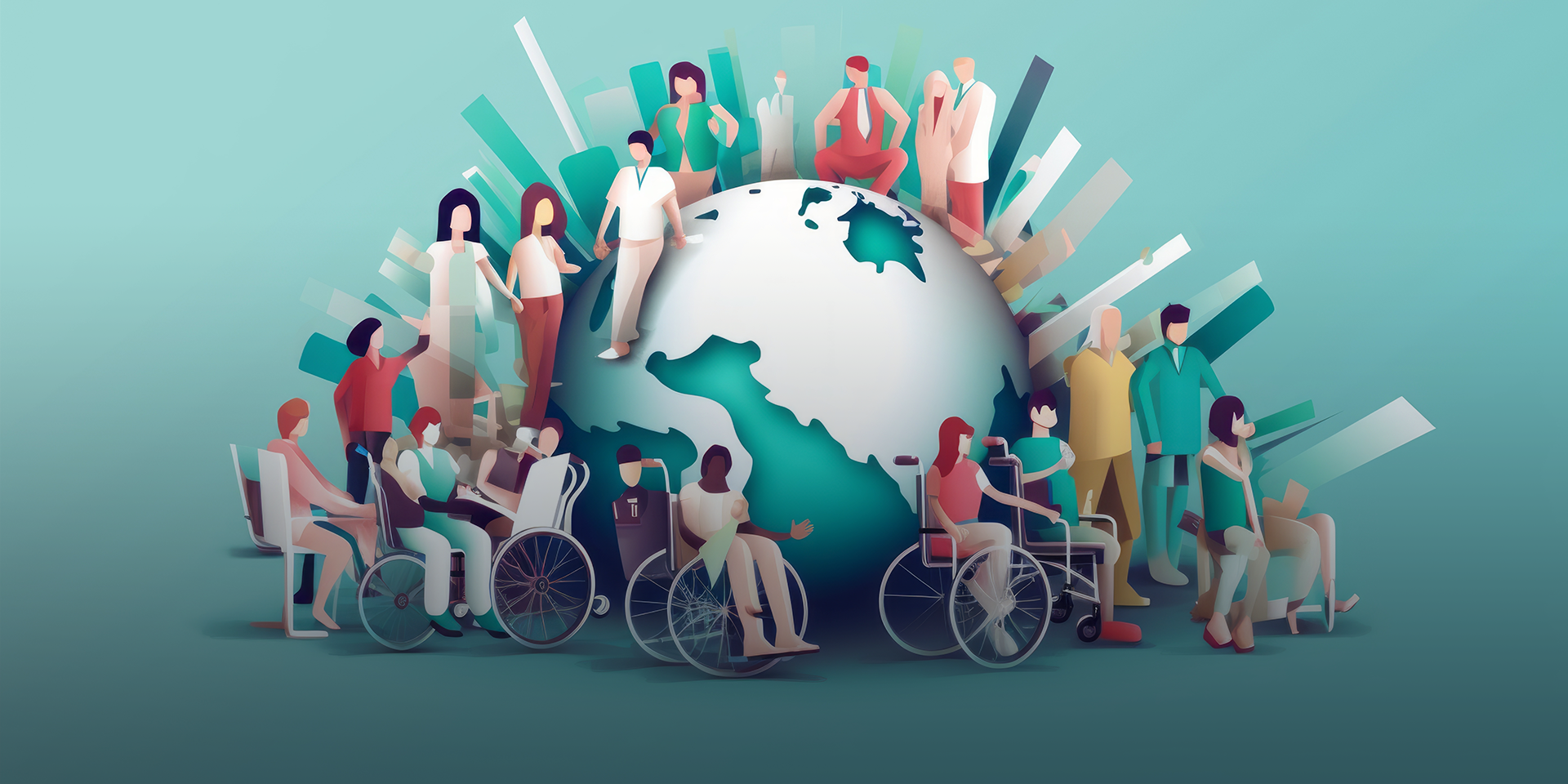
Hiring Interns with Disabilities: Lessons in Inclusion from Development Project Offices
November 30, 2023 | 5 Minute ReadIn honor of the International Day of Persons with Disabilities, learn how two Chemonics project offices took important strides in disability inclusion through internships.
Every year, December 3 marks the International Day of Persons with Disabilities. An estimated one in six people on Earth live with a disability — whether apparent or non-apparent, permanent or temporary. Although societies around the world have made progress toward disability inclusion, people with disabilities remain severely underemployed compared to the general population.
In recognition of the International Day of Persons with Disabilities, Ibrahim Osta, former chief of party for the Chemonics-implemented USAID Bosnia and Herzegovina (BiH) Turizam project, says development practitioners need to “recognize that people with disabilities are an asset, and they can contribute immensely to the overall economy, and both the local culture of the project and team morale and motivation.”
“Practitioners must always design their programs, workplans, budgets and MEL systems to be —where possible — inclusive to persons living with disabilities,” says Fadwa Abdulqader, gender equality, social inclusion and youth manager for USAID’s Jordan Water Governance Activity. “The program implementers have to put some effort even in drafting the job announcements, to encourage applicants with disabilities to apply.”
As one step to advance disability-inclusive development, implementing partners should hire interns with disabilities, who can contribute to improving disability inclusion and accessibility in development work and spur innovations that enable all participants to use resources equitably. For offices that may be uncertain about how best to advance disability inclusion, preparing for and managing an internship for a non-traditional hire may be a manageable first step toward longer-term commitments to improved practices and policies.
Connect with a local government institution or disability organization to identify candidates with disabilities for an internship position. The BiH Turizam project developed a USAID-approved Disability Inclusion Plan to build a disability inclusive tourism industry in Bosnia and Herzegovina. As part of this plan, the project reached out to the Life with Down Syndrome Federation of Bosnia and Herzegovina to identify a suitable candidate to provide a pathway to employment through an internship. The association identified Selma, who followed the standard recruitment process.
“This was not charity. She competed for the position, and she earned it because she was good, and we needed to ensure she is qualified for the job,” says Osta.
Selma wrote a cover letter and resume and submitted them. She interviewed for the internship position and then officially landed the job. BiH Turizam signed a memorandum of understanding with the Down syndrome association and Selma as an employment agreement.
In Jordan, the Chemonics-implemented USAID Water Governance Activity reached out to the Higher Council for the Rights of Persons with Disabilities, a government institution that the disability community widely recognizes, to advertise the internship on Facebook. Youth with disabilities then applied through an application customized to the access needs of persons with disabilities. All youth with disabilities who met the selection criteria received an interview. Finally, the project extended offers to four youth with disabilities.
“Project teams should also always hold interviews in line with international disability protocols, where they focus on the ability of applicants rather on the disabilities,” says Abdulqader. “Where there are organizations that still can’t create job opportunities for persons with disabilities, they are advised to start with creating some internship/fellowship opportunities for that population, where they can practice being in a business environment and test their abilities. The four interns at the USAID Water Governance activity proved this theory, and we will build on it for the next internship rounds.”
Learn from persons with disabilities and local government institutions or organizations of persons with disabilities on how to work with them. Hiring interns with disabilities can change non-disabled employees and stakeholders’ perceptions and helps create greater awareness about their abilities and how to work with them. In Jordan, WGA project employees and stakeholders were not particularly familiar with disability before the internship, which gave them an opportunity to expand their skills. They partnered with the Higher Council for the Rights of Persons with Disabilities to provide mentors supervising interns with disabilities with disability awareness, etiquette, and management training, ensuring that ads for vacancies and interviews were designed to accommodate people with disabilities.
“Despite my extensive experience in supervising employees, I felt nervous about supervising people with disabilities. However, after participating in the training provided by the Water Governance Activity, I gained knowledge and expertise in working with people with disabilities,” says Tamer Almasri, who works for the Water Authority of Jordan.
Meanwhile, BiH Turizam invited the Life with Down Syndrome Federation of Bosnia and Herzegovina to prepare employees and ensure that they were sensitive to Selma’s needs. During the internship, Selma worked with many departments — as the project office learned more about her skills and interests, she came to work most closely with the senior designer and social media and web associate on project communications. Selma’s colleagues learned how to adjust the workplace to enable her to contribute her best to the project.
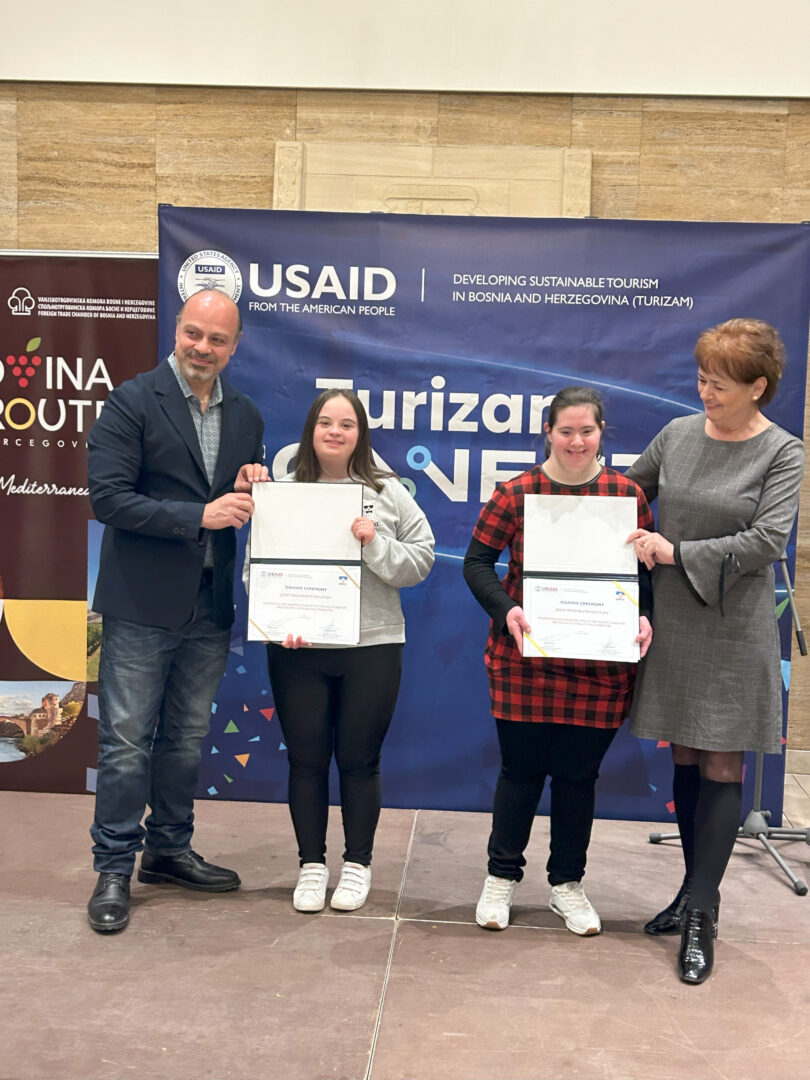
“We all had to learn, and we had to adjust our behavior,” Osta explains. “For example, she couldn’t tolerate noise, and it would aggravate her, and the team needed to know when they might be rowdy and noisy and when to behave differently.”
Selma also led dancing lessons for all project staff, which taught her leadership skills. She showed “[she] can lead, and she was the center of attention,” says Osta. “She was such a joy to have.”
Provide new skills to persons with disabilities to help advance their employment opportunities. Hiring an intern with a disability paves the way for decreasing disability unemployment by providing opportunities to learn new skills. With Jordan WAG, an accounting intern learned how to perform financial management, financial auditing, cost accounting, and bank reconciliations. Another intern who worked in infrastructure learned how to conduct soil testing before construction work, to ensure no groundwater lay beneath the soil.
At BiH Turizam, Selma gained critical skills in database entry, graphic design, and communications and went on to become an employee at the Sarajevo National Theater. After Jordan WGA, interns with disabilities landed a job in finance and at the Ministry of Agriculture, while a couple interns with disabilities received a six-month extension with WGA for their impressive work.
Osta emphasizes that persons with disabilities should be viewed as an asset and be included in conversations when implementing projects. Accommodation is an investment, not a cost. “People with disabilities often have fewer employment opportunities, and we need to make an effort to reach out to be inclusive and we have a responsibility to be inclusive,” says Osta. “It’s not enough to wait for someone with disabilities to apply. That’s why I thought we should reach out to the association with people with disabilities.”
Osta continues, “I think we have a responsibility to be inclusive in our own organizations and to promote inclusion and the countries in which we work, by working with local stakeholders, so awareness is important and at taking active efforts to create opportunities for people with disabilities and make sure we allocate time and money, resources and sometimes in the case of grant money, allocated grant funds.”
“Hiring youth living with disabilities changed the perceptions around stereotypes for youth interns without disabilities,” says Abdulqader.
As development practitioners know, working inclusively is important for all the work we do — not just on projects focused on social inclusion. Besides ensuring inclusion for program participants, our teams should reflect the communities where we work. This includes hiring p999eople with disabilities. For many project offices, internships can be a positive initial commitment: managers can learn about accommodating varying job functions, and staff can learn how to cooperate with colleagues with disabilities. More importantly, persons with disabilities gain new skills that lead to increased employment opportunities.
Posts on the blog represent the views of the authors and do not necessarily represent the views of Chemonics.








